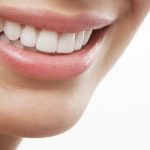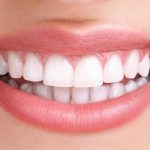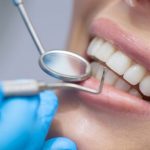How Cornstarch Affects Your Teeth: What You Need to Know
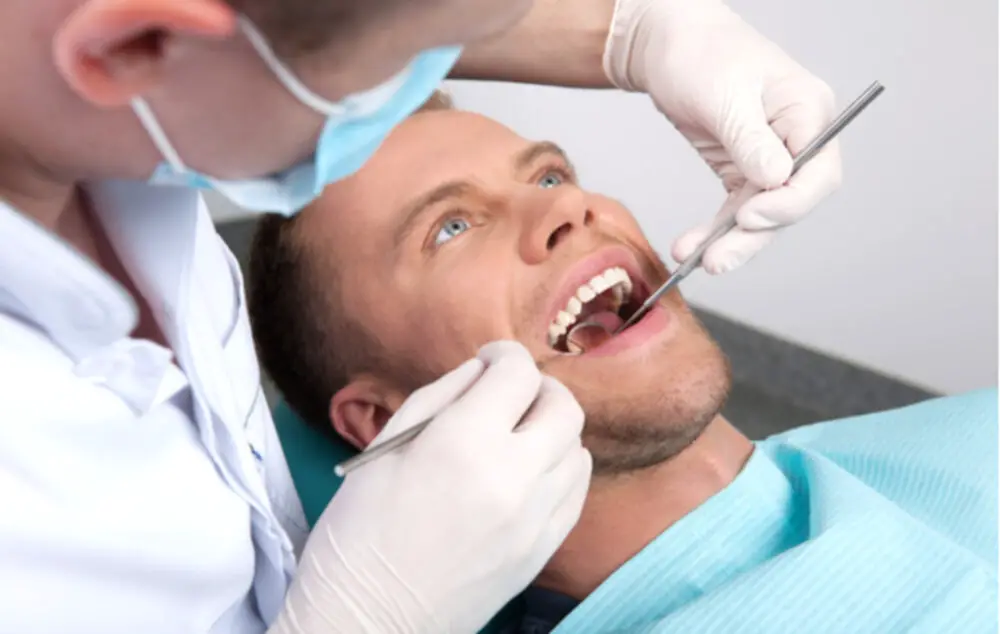
Cornstarch is a commonly used ingredient in various recipes, from thickening sauces to baking cakes and cookies. While it is considered a staple in many households, some may not be aware of the potential effects it can have on their teeth. Cornstarch is a carbohydrate that can break down into sugar, which can lead to tooth decay and other dental issues. It’s important to understand how cornstarch affects your teeth and take necessary precautions to maintain good oral health. When cornstarch is consumed, it can stick to teeth and gums, creating an environment for harmful bacteria to thrive. The bacteria feed on the sugar produced by the breakdown of cornstarch, producing acid that erodes tooth enamel and leads to cavities. Additionally, cornstarch can be difficult to remove from teeth, which can lead to prolonged exposure to the acid-producing bacteria. Understanding the impact of cornstarch on dental health is essential to make informed choices about one’s diet and maintain good oral hygiene practices.
Cornstarch is a fine, powdery substance made from the starchy part of the corn kernel. It is commonly used as a thickener in cooking and baking, and can also be used as a substitute for flour in gluten-free recipes. Cornstarch is also used in the manufacturing of various products such as cosmetics, paper products, and adhesives. In the dental industry, cornstarch is used as a polishing agent for teeth. When combined with fluoride, cornstarch can help remove surface stains and strengthen tooth enamel. However, it’s important to note that excessive use of cornstarch in dental products can lead to abrasion and damage to tooth enamel.
Cornstarch is often used in dental products due to its unique properties. One of its main benefits is its ability to act as a thickening agent, which helps to create a thicker and smoother texture in toothpaste and mouthwash. Cornstarch is also known for its absorbent qualities, which make it useful in dental floss and oral wipes. Additionally, cornstarch has a neutral taste and is non-toxic, making it a safe ingredient for use in oral hygiene products. Its versatility and effectiveness make it a valuable component in many dental products, contributing to their effectiveness in promoting oral health and hygiene.
The Benefits of Cornstarch in Dental Products
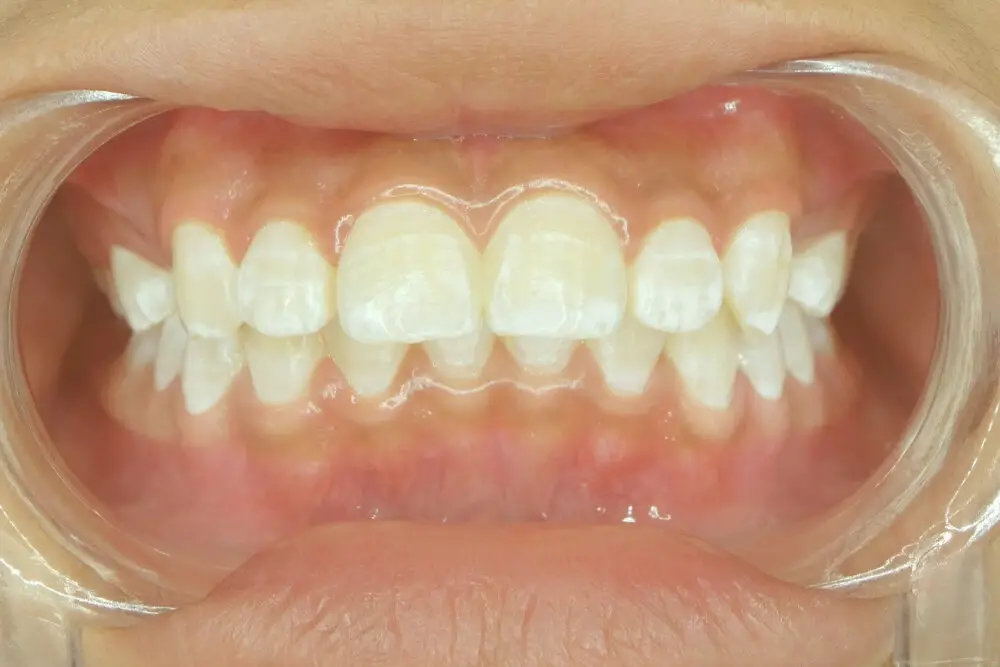
Cornstarch is a versatile ingredient that is commonly used in baking and cooking. However, many people may not be aware of the benefits that it can provide for dental health. Cornstarch is an effective ingredient in dental products due to its ability to absorb moisture and act as a gentle abrasive. This makes it an ideal addition to toothpaste and mouthwash formulations. One of the main benefits of cornstarch in dental products is its ability to absorb moisture. This can help to keep the mouth dry and reduce the risk of bacterial growth. Additionally, cornstarch can help to absorb excess saliva and prevent the formation of plaque and tartar. This can be particularly beneficial for individuals who suffer from dry mouth or other conditions that increase the risk of dental problems. Furthermore, cornstarch can help to neutralize the acids that are produced by bacteria in the mouth, which can help to prevent tooth decay and other oral health issues.
Cornstarch is a highly absorbent substance that is commonly used in dental products due to its ability to soak up excess moisture. When added to toothpaste, for instance, cornstarch helps to improve the product’s texture and consistency, allowing it to spread more easily across the teeth and gums. This can help to remove more plaque and bacteria from the mouth, leading to a deeper clean and fresher breath. Similarly, cornstarch can be found in many dental floss products, where it acts as a lubricant to help the floss glide more smoothly between teeth. By reducing friction, cornstarch can make flossing less uncomfortable and more effective at removing food particles and bacteria from hard-to-reach areas. Overall, cornstarch’s absorbent properties make it a valuable ingredient in many dental products, helping to improve their effectiveness and user experience.
Cornstarch is a versatile ingredient that is commonly used in many dental products due to its absorbent and binding properties. Toothpaste, dental floss, and mouthwash are a few examples of dental products that use cornstarch as an ingredient. Cornstarch helps to thicken toothpaste and give it a smooth texture, making it easier to apply and spread evenly on the teeth. Dental floss is coated with cornstarch to make it more durable and less likely to break during use. In mouthwash, cornstarch acts as a binding agent, helping to keep the active ingredients suspended and evenly distributed throughout the solution. Overall, cornstarch is a useful and safe ingredient in dental products that can improve their effectiveness and ease of use.
The Effects of Cornstarch on Teeth
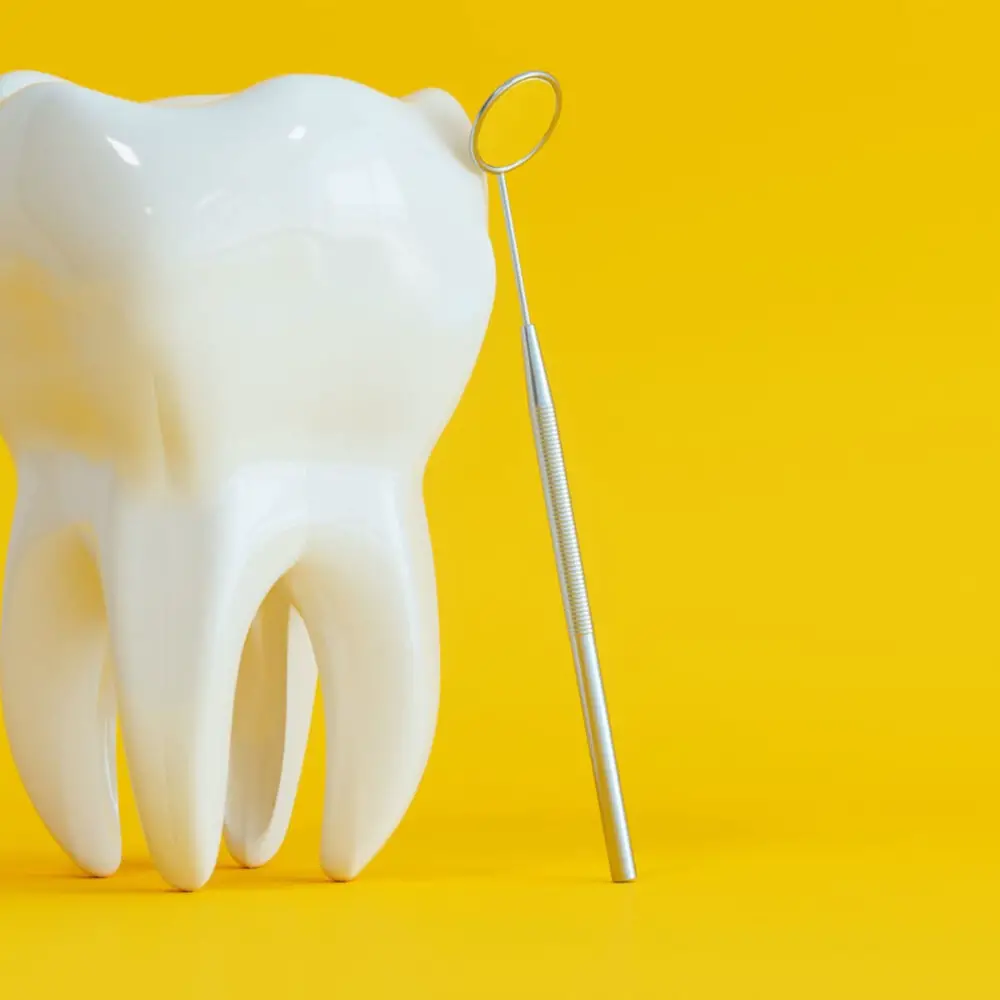
Cornstarch is a commonly used ingredient in many household foods and products, but did you know that it can also have an impact on your dental health? Cornstarch is a refined carbohydrate that can contribute to the growth of harmful bacteria in your mouth. These bacteria feed on the sugars and starches left behind on your teeth after eating, producing acids that can erode your tooth enamel and lead to cavities. Therefore, consuming cornstarch in excess can potentially harm your teeth and oral health. However, cornstarch can also have a positive effect on your teeth. Some studies have shown that cornstarch can be used as an abrasive agent in toothpaste, helping to remove plaque and surface stains from your teeth. Additionally, cornstarch can be mixed with water to create a natural and gentle mouthwash that can help to neutralize acids in your mouth and freshen your breath. When used in moderation and in the right way, cornstarch can be beneficial for your dental hygiene and overall oral health.
Cornstarch is a commonly used ingredient in many food products, but it can potentially harm your teeth if consumed in large quantities. When cornstarch is ingested, it can stick to the teeth and gums, providing a breeding ground for harmful bacteria. The bacteria feed on the cornstarch, producing acid that can erode the enamel on your teeth, leading to cavities and tooth decay. Additionally, the sticky nature of cornstarch can make it difficult to remove from your teeth, even with brushing and flossing. Therefore, it is important to limit your consumption of cornstarch-containing foods and to maintain good oral hygiene habits to prevent damage to your teeth.
Several studies have investigated the impact of cornstarch on dental health, revealing mixed results. Some studies suggest that cornstarch can help to neutralize harmful acids in the mouth and act as a natural abrasive, which can help to remove plaque and promote healthier teeth. Others, however, have found that cornstarch can actually cause damage to tooth enamel, particularly when combined with other substances like sugar or acid. Additionally, some dental professionals caution that consuming large amounts of cornstarch may increase the risk of tooth decay and other oral health issues. Overall, it appears that the effects of cornstarch on teeth may vary depending on a number of factors, including individual dental health, diet, and lifestyle habits. As with any food or substance, it is important to consume cornstarch in moderation and practice good oral hygiene habits to maintain optimal dental health.
How to Minimize the Negative Effects of Cornstarch on Teeth
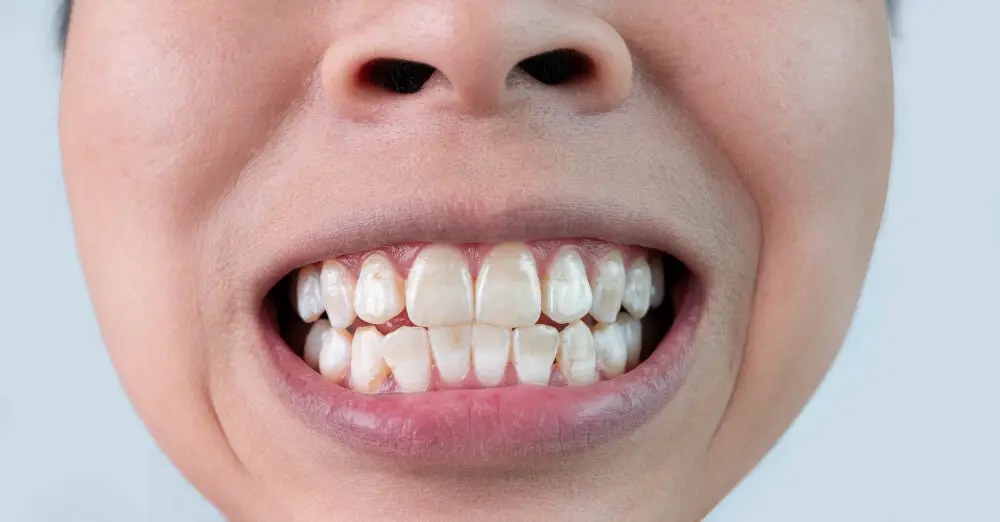
Cornstarch is a common ingredient used in many recipes. However, it can have negative effects on your teeth if not consumed in moderation. Cornstarch is a carbohydrate, which means it can easily break down into sugar. When you consume sugary foods, the bacteria in your mouth feed on the sugar and produce acid, which can lead to tooth decay. Therefore, it is essential to minimize the negative effects of cornstarch on your teeth. One way to minimize the negative effects of cornstarch on your teeth is to consume it in moderation. It is best to limit your intake of sugary foods and starches to prevent tooth decay. Additionally, brushing and flossing your teeth regularly can help to remove any food particles that may be stuck between your teeth. If you cannot brush your teeth after consuming cornstarch, you can rinse your mouth with water or chew sugar-free gum to help stimulate saliva production, which can neutralize the acid in your mouth. By following these simple tips, you can enjoy cornstarch without compromising your dental health.
Cornstarch can be a useful ingredient in many dental products like toothpaste and mouthwash due to its ability to thicken and stabilize the formula. However, it’s important to use these products with cornstarch safely to avoid any negative effects on your teeth. One tip is to check the label of dental products before purchasing to ensure that they don’t contain excessive amounts of cornstarch. Additionally, it’s recommended to use these products in moderation and to follow the instructions carefully. Overuse of cornstarch in dental products can lead to tooth decay and other oral health problems. Therefore, it’s important to be mindful of your usage and to consult with a dentist if you have concerns about your dental health.
Cornstarch is a common ingredient found in many dental products such as toothpaste and mouthwash. However, for individuals with corn allergies or sensitivities, these products can cause adverse reactions. Fortunately, there are alternative dental products available that do not contain cornstarch. Some toothpaste brands use alternative thickeners such as xanthan gum or carrageenan, while others may use natural ingredients like baking soda or clay. There are also mouthwashes and dental flosses that do not contain cornstarch, making it easier for those with allergies to maintain good oral hygiene without compromising their health. It is important to read labels carefully and consult with a healthcare professional to determine which products are safe and effective for individual needs.
Cornstarch has become a popular ingredient in dental products due to its natural and gentle properties. It is often used as a thickening agent in toothpaste and mouthwash, providing a smooth consistency without the use of harsh chemicals. In addition, cornstarch has been found to have a neutral pH, which can help maintain a healthy balance of bacteria in the mouth. However, there are also potential risks associated with the use of cornstarch in dental products. It is possible for cornstarch to become trapped in between teeth or under the gums, leading to inflammation and even infection. Additionally, some individuals may be allergic to cornstarch, which can cause adverse reactions such as swelling or difficulty breathing. It is important to weigh the benefits and risks of cornstarch before incorporating it into your oral hygiene routine.
After thorough research on the topic, it can be concluded that cornstarch can be a beneficial addition to dental care routines when used in moderation. Its ability to absorb moisture and neutralize acid can aid in preventing tooth decay and reducing sensitivity. However, excessive use of cornstarch can lead to abrasion and damage to the enamel. It is important to consult with a dentist before incorporating cornstarch into a dental care routine and to use it sparingly and with caution. Overall, while cornstarch can have its benefits, it is not a substitute for proper dental hygiene practices such as brushing, flossing, and regular dental check-ups.
Conclusion

In conclusion, cornstarch can have both positive and negative effects on your teeth depending on how it’s used. While its abrasive texture can aid in removing surface stains, excessive use can lead to enamel erosion and tooth sensitivity. It’s important to use cornstarch in moderation and consult with your dentist if you have any concerns about its impact on your oral health. As with any substance, proper usage and moderation are key to maintaining a healthy and radiant smile.


